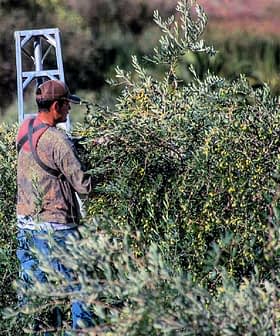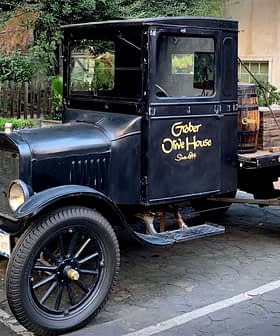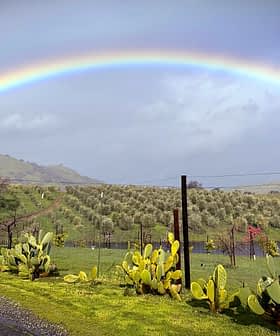California Senators Hear Industry's Call for a 'Level Playing Field'
The California State Senate Subcommittee on Olive Oil and Emerging Products held an informational hearing chaired by Senator Lois Wolk, with testimony from industry experts highlighting challenges faced by the state’s olive oil producers, including unfair competition from European producers. The hearing also discussed the potential implementation of an industry marketing order to address issues such as mislabeled olive oil and establish rules for the domestic industry.

A new California State Senate Subcommittee on Olive oil and Emerging Products held an informational hearing Thursday before a packed room and an audience of hundreds who watched live via a webcast.
The session was chaired by State Senator Lois Wolk (D‑Davis), who recently attended the olive oil quality seminar at the Culinary Institute of America’s Napa Valley campus, and another industry meeting in Dixon, California on a proposed marketing order.
The lawmakers heard testimony from UC Davis Olive Center Director Dan Flynn, author Tom Mueller, Caliifornia Olive Ranch Vice President Adam Englehardt, Mike Bradley of Veronica Foods, Australian Olive Association’s Paul Miller, North American Olive Oil Association President Bob Bauer and others.
The procession of speakers presented accounts of the challenges faced by the state’s olive oil producers who confront, they said, unfair competition from unscrupulous European producers and importers who don’t play by the rules.
It began with Flynn’s recount of last April’s widely publicized report that found nearly three-quarters of imported olive oil in California supermarkets to be mislabeled. Next, Tom Mueller gave a deftly worded account of the olive oil underworld that has been causing quite a stir along his whistle-stop tour to promote his new book, Extra Virginity.
Listen to remarks by Tom Mueller:
Adam Englehardt, a fifth-generation farmer who manages the orchards for the state’s largest olive oil producer spoke about the promise and suitability of the olive crop for the state. Straightforward and convincing, Englehardt said, “What stands in the way of expansion (of olive cultivation in California) is a level playing field.”
Mike Bradley gave a dramatic presentation of olive oil containers he found on store shelves carrying labels that exhibited astonishing, and illegal, misinformation that prompted audible gasps and looks of disbelief from senators and onlookers.
At one point Senator Berryhill said, “This is the most interesting informational meeting I have ever been to.” And there was little doubt that an agricultural subcommittee for a state only beginning to make olive oil would not often hear the drama and deceit described by the speakers before them and with which this industry has been rife for centuries.
There was also little doubt they planned to do something about it. Senator Berryhill (R‑Stanislaus) compared the olive sector to the state’s grape industry and said, “What we’re doing here today is starting the process of trying to come up with something that makes sense for everybody,” and there were signs that an industry marketing order would likely be among the first steps taken.
It wasn’t as easy an audience for the NAOOA’s Bob Bauer, whose organization represents some of the importers implicated by others in the room. This was clearly an away game for Bauer, and one might have expected a cautious “we also want to force out the bad guys” approach (he did recount a time when he saw an illegal label in a supermarket and dutifully called the producer directly, right from the store).
But then predictably Bauer turned to maintain that the new testing methods employed by Flynn’s lab and others to identify bad olive oil, known as the PPP and DAG tests, were “rejected by the world experts on olive oil.” He called taste tests, where certified panels of expert tasters declare a sample free of defects or not, “unsuitable for the classification of olive oil” since they are, he said, “subject to bias.” And Bauer warned that an industry marketing order would be costly and “detrimental to public health,” since it would “make olive oil less affordable for consumers.”
The hearing was a remarkable exhibition of the battle lines being drawn by a young domestic industry seeking to establish rules and demolish the long-held advantages enjoyed by international traders of low quality olive oils.
Part 1 of the 2‑hour hearing can be viewed here, and part 2, here.





